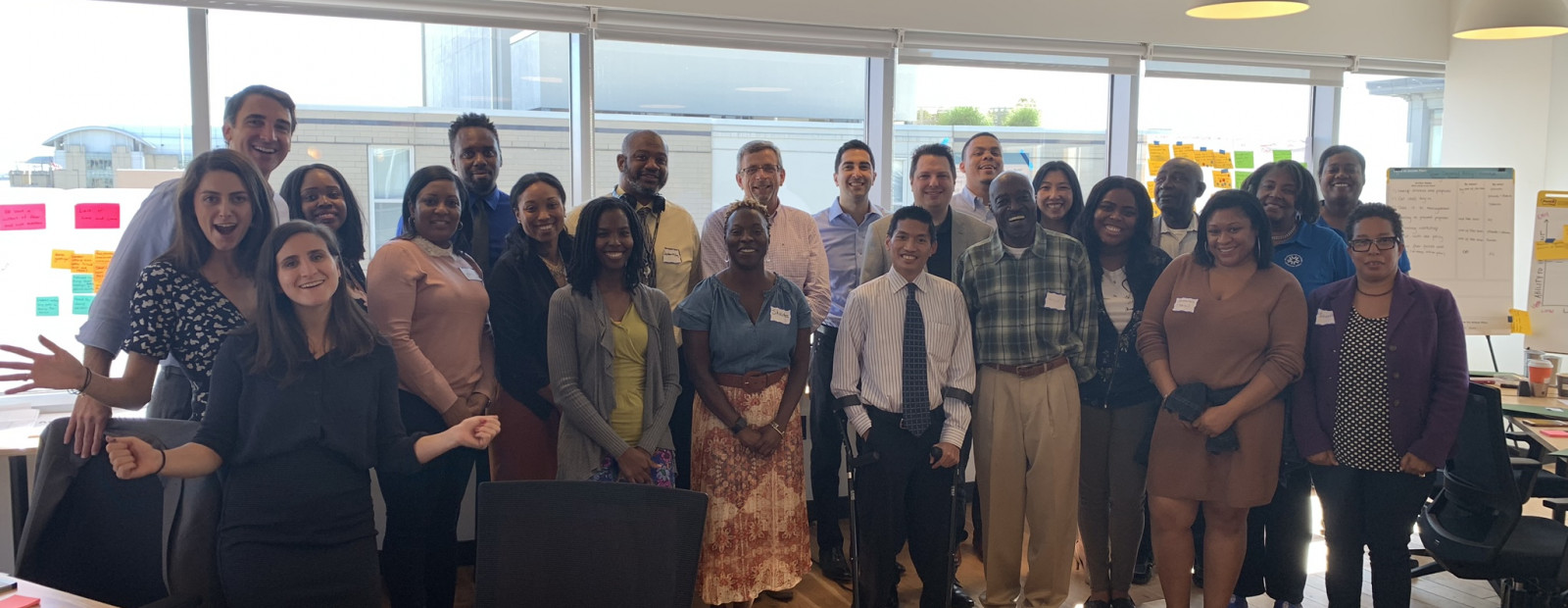
The power of storytelling in climate leadership


Read the new report 'How to Fail (Forward): A Framework for Fostering Innovation in the Public Sector' by @CPI_foundation & @AspenUrbanInnov
Share article.@Josh_Sorin & Andi Mirviss explore how to create environments where teams #FailForward in the new report @AspenUrbanInnov @CPI_foundation
Share article#Failure is as inevitable in government as it is in any complex system. Read @CPI_foundation @AspenUrbanInnov report on how to #FailForward
Share articleWe put our vision for government into practice through learning partner projects that align with our values and help reimagine government so that it works for everyone.
This is the third installment of a three-part series about learning from failure in government. You can find the first and second instalments at the embedded links and read our report on the topic here.
In local government, the word ‘failure' can feel even more taboo than a four-letter word. The value associated with the failed experiments that lead to ‘eureka moments' in the private sector is not afforded to local governments, who face perennially tight budgets and increasingly complex problems.
And yet, despite the anxiety around the word, failure is as inevitable in government as it is in any complex system.
For governments to make, and continue to make, good on their mission to serve the public, they must begin to plan for and learn from these failures.
There are several reasons why learning from failure is important. Firstly — it's how you examine what is and is not working within the status quo. We can't move forward unless we understand why we need to. Secondly, failure is baked into any innovation effort. A process of trial-and-error enables learning to find the best solutions. Accepting that failure is inherent in this process allows the improvers to better identify and discuss problems when they arise.
Despite its importance, this process is not exactly easy — particularly for public servants in local government. In the fall of 2019, the Centre for Public Impact partnered with the Aspen Institute Center for Urban Innovation to explore precisely why it is so challenging in local government and to uncover potential strategies to overcome them.
The bulk of our findings were informed by the six local governments, 20 departments, and over 150 public servants who participated in our Failure Foundries. Participating governments included: Washington, DC; Kansas City, MO; Little Rock, AR; King County, WA; Seattle, WA; and Dallas, TX. Departments spanned a wide range of jurisdictions, from Municipal Courts to Departments of Parks and Recreation to Information Technology. Staff at all levels of seniority from each department attended, including department directors, middle managers, and frontline employees.
The world is a very different and, frankly, scarier place than when we started this report. As we write this, it is to the background sounds of the radio cover stories of a global pandemic, a widespread economic crisis, and nationwide unrest over injustice and racism.
To say that municipalities now face the greatest challenges of our era almost understates the magnitude of the moment.
In response, local governments are now moving at speed and with ingenuity that many - including themselves - did not believe they possessed. Every day new innovations and ideas are being tried out, and every day public servants discover new ways of making local government more connected and responsive to the public. To a certain degree, the magnitude of our era's challenges is liberating; failures are so likely and so widely acknowledged amidst such complexity that innovation is not seen just a possibility, it's an imperative. We hope that this report might further bolster this sea change by presenting our understanding of the barriers that local governments face to learning from failure and posing some strategies that might break down these barriers.
Our primary finding is that a government department's culture is the critical determinant of its ability to fail forward. No new technology or methodological approach (i.e., human-centered design) will have a sustained impact if teams don't share the right mindsets and beliefs, feel overarching psychological safety with one another, and have systems and processes that empower all staff while opening channels of communication to talk about uncomfortable things. Local governments face considerable challenges in creating and supporting this culture from both without and within.
Our research revealed four primary opportunities to promote failing forward in government. As with any complex system, there are no simple answers to creating an organization that fails forward, but we believe that making changes within these four elements is an important place to start.
The path forward is both complex and exhilarating. We hope that some of the strategies listed in our report can spark ideas that might be adapted and applied to your unique contexts, and we encourage you to fail forward along the way.
If after reading the report you are interested in learning more or partnering with CPI, please email Andi Mirviss.











